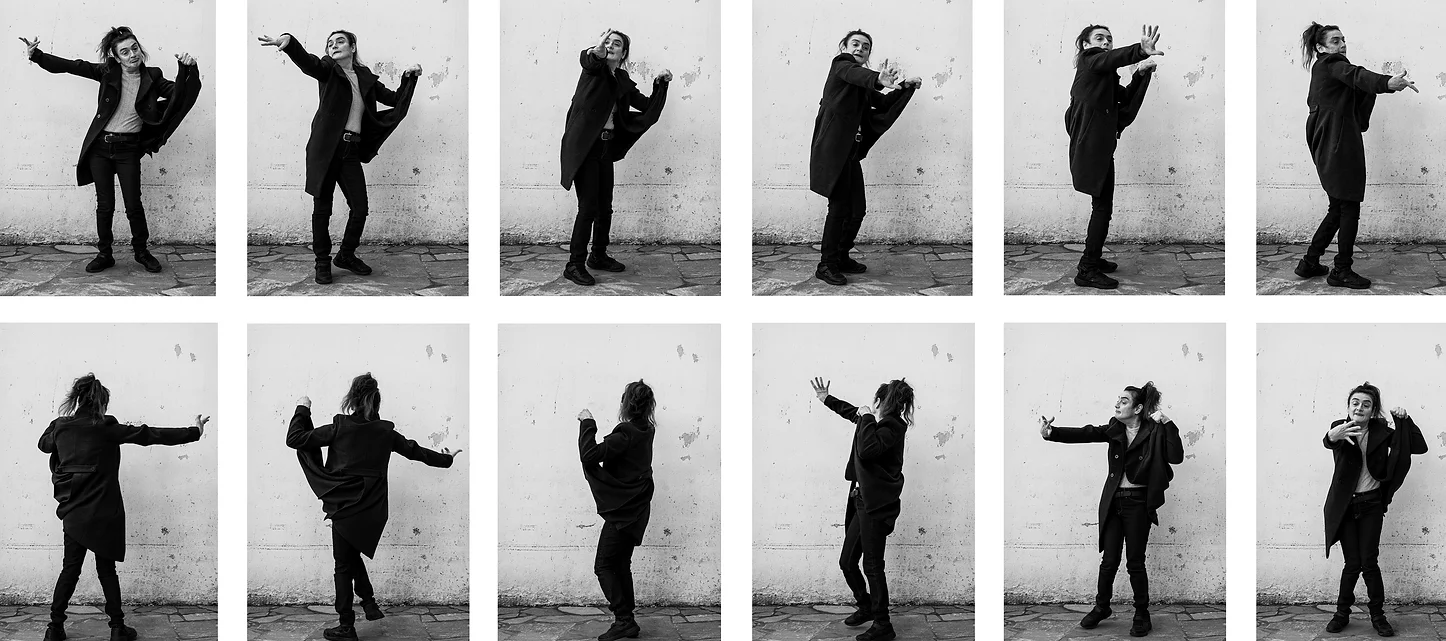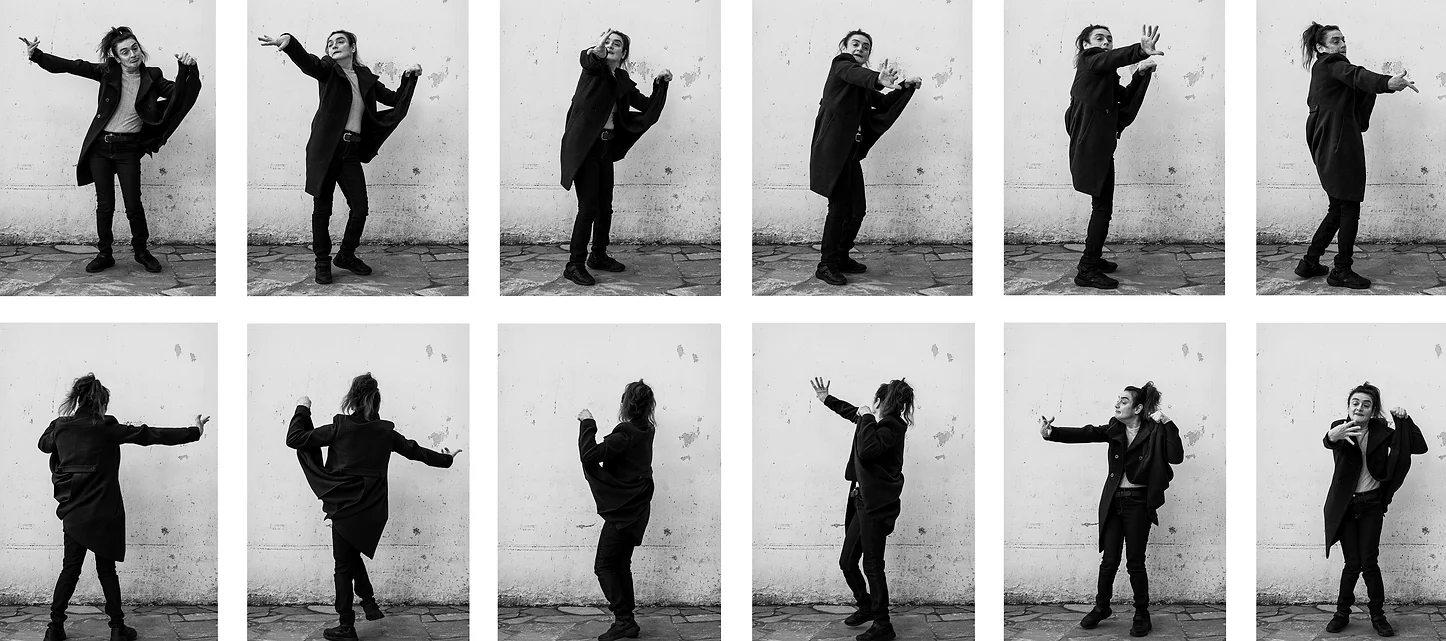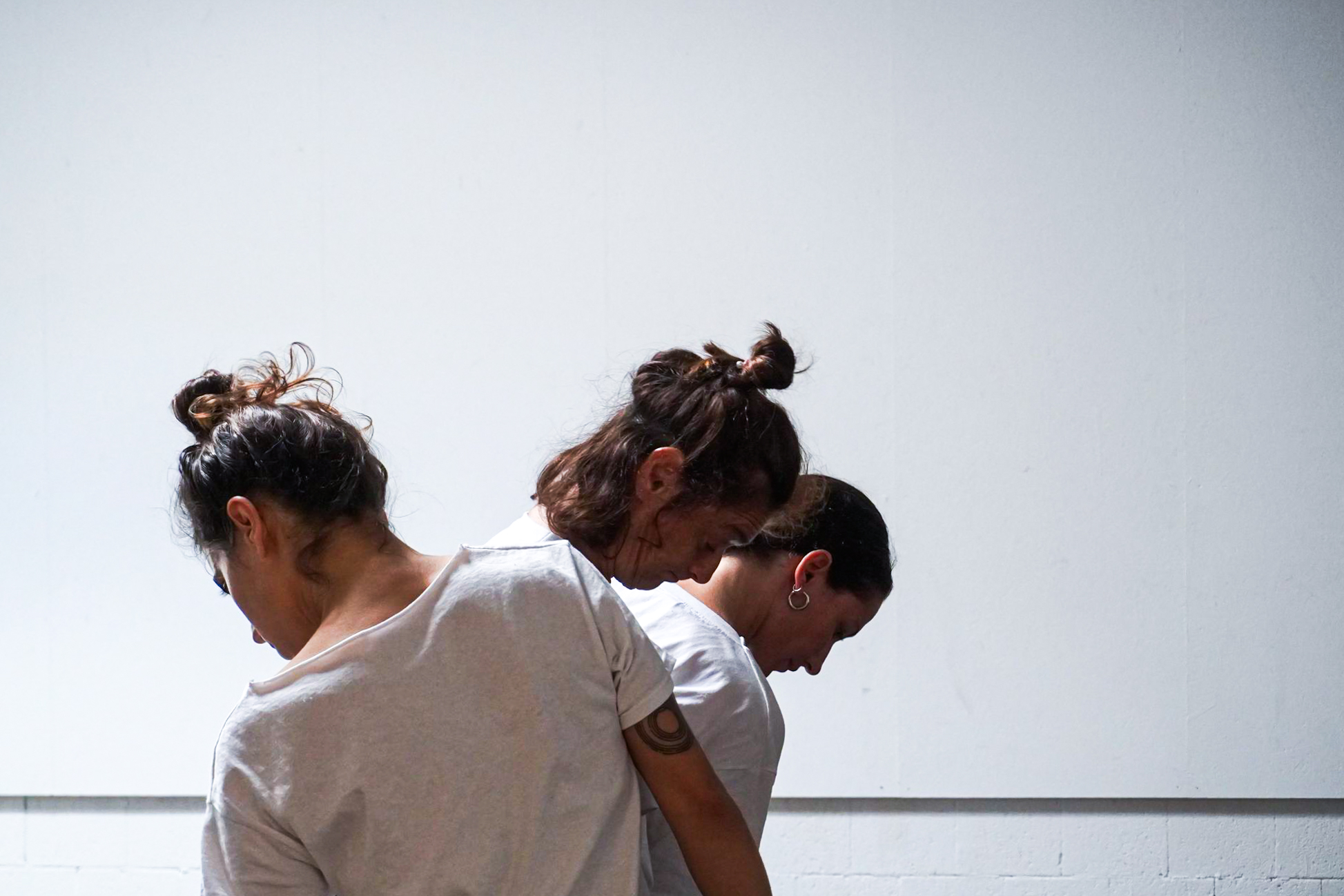Dancing (fancy)
Dancing (fancy) explores notions related to abled, disabled, young and old bodies, centering on the body that is not necessarily acceptable to be present on stage.
The stepping stone for Maria Koliopoulou's new choreographic work is Gilles Deleuze's question: "What can a body do".
In Dancing (fancy), the choreographer connects her research on the body, with breathing, voice and movement, creating fields of temporal coexistence that are transformed and regenerated in the here and now of each performance. The choreographic work redefines constantly one body through another, humorously searching for simplicity in movement, within a fairy tale universe.
Dancing (fancy) began its journey at the Folkwang University in Essen with the Tanzrecherche NRW grant and continued in Cologne with the support of 'Culture Moves Europe' and ROOTS & ROUTES.
The work borrows its title from E. J. Muybridge's photographic work, 'Dancing fancy' from his 1887 book Human Locomotion.
Credits
Choreography Maria Koliopoulou
Performers Katerina Avramopoulou, Katerina Gevetzi, Loukiani Papadaki
Dramaturgy consultant Betina Panagiotara
Silent singing Anna Pagalou
Sound design Yiannis Isidorou
Lighting design Thomas Oikonomakos
Costume design Eleftheria Arapoglou_Digitaria
Artistic collaboration Mariza Vinieratou
Photos Elpida Tempou
Press Martha Koskina, Chrysa Matsagani
Production manager Cultόpια
Production Prosxima Dance Company
Premiere 27 September 2023, Bios, Athens.
Duration 35 min
Funded by the Greek Ministry of Culture & Sports 2022-2023 and Culture Moves Europe
‘Culture Moves Europe’ is a programme funded by the European Union and implemented by the Goethe Institut. This work was produced with the financial assistance of the European Union. The views expressed herein can in no way be taken to reflect the official opinion of the European Union.
Supported by Dance Research NRW, a scholarship of the NRW KULTURsekretariat – funded by the Ministerium fur Kultur und Wissenshaft des Landes Nordrhein - Westfalen
With the kind support of „iJuLa – intersektionale JugendLabore im Veedel“, a RRCGN project funded by the program “Demokratie leben!” by the German Federal Ministry for Family Affairs, Senior Citizens, Women and Youth; additional funding comes the Youth Ministry of the Federal State of North Rhine-Westphalia, DOHLE Foundation and the European Solidarity Corps.



